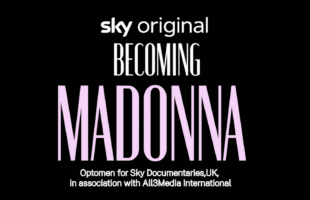2008 has seen newly-signed strategic alliances between NBC Universal, Inc. (NBCU) and New Delhi Television Ltd (NDTV), and between Turner International and Alva Brothers. These follow similar deals over the last couple of years joining Walt Disney Television International with United Home Entertainment Ltd / UTV Software Communications; Sony Entertainment Television (SET) with Sri Adhikari Brothers Television Network; and Star Group with Balaji Telefilms Ltd. Majority of the deals have a similar pattern. First, global majors are looking at partnering established production companies in India for joint venture (JV) broadcasting ventures. Secondly, they acquire a stake in the same production company. Such alliances are being formed when India is on the cusp of change, an era marked by digital revolution. DTH, digital cable and IPTV are realities today. Projections indicate that India will have 90% penetration, with an estimated 185million television homes by 2015. According to Ronnie Screwvala, Founder and Chairman of UTV Group the tie-ups not only signify the fact that every western media major wants a piece of the domestic action in India but also the eagerness of media houses in India to do the reverse. “In either cases there would mostly be ‘local’ partners or local acquisitions involved. Therefore the need to suddenly gain production and broadcasting competency will be always superseded by the need to find the right partners or investment avenues,” he said. Mumbai-based Sony Entertainment Television’s executive vice president and business head, Albert Almeida feels strategic alliances, consolidation and inroads into regional markets will be key drivers for the broadcast industry over the next couple of years or more. “India remains a vast and diverse country with so much local culture – it’s prudent for global players to acquire local sensibility and knowledge before they step into the market – alliances ensure a shorter learning curve and faster business cycle and hence this trend will continue,” Almeida said. From a production company’s perspective, Contiloe Films’ founder Abhimanyu Singh said, “India is like a continent, so many languages, religions etc. It definitely gives an opportunity in every region to have and form their respective offer. Advertising appetite would need to support the growth.” In Turner International’s case, it has entered into a partnership with the Alva Brothers (holding company), promoters production house Miditech Pvt. Limited to launch an entertainment channel in Hindi and other Indian languages, targeted at the urban Indian audience. Additionally, Turner will also acquire a minority stake in Miditech. Under the agreement, Turner and the Alva Brothers will each own 50% of the broadcasting venture. “We believe in the power of partnership which means leveraging the local skills with global expertise to launch successful networks,” said Anshuman Misra, managing director, Turner International India Private Limited. More recently, as per information shared by NDTV, the company signed a Memorandum of Agreement (MoA) for a 26% stake to an NBCU affiliate for US$150million. The MoA also envisages that NBCU affiliates would have the option to acquire up to 50% of said subsidiary in the third year of the joint venture at the then fair market value. The MoA and the transaction contemplated therein are subject to receipt of all necessary approvals. The proposed joint venture shall not relate to news channels in India. “India will be a US$5billion television market by 2011, with a couple of hundred channels and a lot of cable-companies,” Pete Smith, London-based president of NBC Universal International, told the Financial Times. “It is incredibly competitive. That is the bad news, but the good news is the growth. This deal gives us a bouquet of channels, particularly the Hindi language channel NDTV Imagine.” The lure of Hindi entertainment channel, too, got Turner into its latest deal. As Misra acknowledges, “We believe the Hindi entertainment genre is largely untapped in India. There is tremendous potential for alternative content.” He added, “The Turner-Alva venture will leverage the Alva Brothers’ in-depth understanding of Indian audience’s entertainment needs and Turner’s expertise in operating broadcast networks globally. Given our track record in running two successful kids’ networks in India, we are well aware of the media landscape in India. Miditech, too, has developed many successful formats (for audiences in India).” Apart from targeting Hindi entertainment genre, the companies are also eyeing region-language ventures. For example, April last year saw Star and Balaji formed a JV to create a television network of regional language general entertainment channels initially targeted at the fast growing South India market. At that time, Star shared that the two companies will combine their resources to infuse southern regional channel Vijay with Balaji content. Other plans include channels in Telugu, Kannada, Malayalam (languages in southern India) and other key regional languages to be launched within the next two to three years. When asked about regional ventures, Turner’s Misra said, “Our plan is to launch a Hindi entertainment channel first and will then depend on research for other language options.” While the likes of Turner and Walt Disney have chosen established production houses like Miditech and UTV for such deals, there are other strategic alliances afoot in which relatively young independent production house like Sol, have been chosen as an entry channel by international counterparts. Mid-January 2008 saw Zodiak Television acquire a 35% stake in Mumbai-based Sol, which specialises in non-fiction entertainment and event management. Sol has been associated with Star India for its major events like Star Privaar Awards and other shows such as celebrity talk show Koffee with Karan and reality dance show Nach Baliye. For the launch of the Indian entertainment channel NDTV Imagine, Sol is producing a daily format dance show Nach Le Ve and reality show Dhoom Macha De, about India’s best live performer. For Zodiak Television, the deal with Sol marked its first expansion outside of Europe. The company chose India as the entry market owing to the tremendous rise in content demand. Zodiak acknowledges that Sol’s current standing in the market will provide it with an important foothold in the country. The two companies will now cooperate actively to develop Sol, with the aim of eventually increasing Zodiak’s stake. Zodiak Television’s distribution unit Zodiak International will license and distribute all Sol’s formats internationally, excluding India. With around 70 new channels set to launch this winter alone the scope for content production is “mind-blowing”, pointed out Patrick Svensk, President and CEO of Zodiak Television. Interestingly, unlike Zodiak, the likes of Endemol chose a different route. After seeing its formats such as Operacion Triunfo (Fame Gurukul), Night Fever (Kisme Kitna Hai Dum) and Deal Or No Deal going on air, Endemol directly launched its first subsidiary in Asia, Endemol India, in early 2006. Its intent was to exploit Endemol’s intellectual property within the Indian market. Even in India, established production house Synergy didn’t align with a foreign partner. Synergy Communications became Synergy Adlabs Media Ltd mid-2006 when it entered into a joint venture with Adlabs Films to become the television division of Adlabs, associated with the Reliance ADA Group. Significantly, Reliance ADA Group is building significant presence in the entertainment eco-system: across content and distribution platforms. The key content initiative is across movies, music, sports, gaming, Internet and mobile portals, leading to direct opportunities in delivery across the emerging digital distribution platforms: digital cinema, IPTV, DTH and Mobile TV. While Reliance, in a short span, has scaled up its operations, a company like UTV has evolved from being just a “production house” and “services” company to become an integrated media company. UTV rose to this level by building on its core strength, content creation, both in TV and in motion pictures. In the last 12 months or so, it has launched its interactive initiative on the strength of its animation business by acquiring a controlling interest in gaming companies spanning console, mobile and online. “We have demonstrated that we can be a global player and at the same time remain strong in our domestic market,” said Screwvala, pointing out that UTV is at the top end of the value chain in each of its business verticals where its brands reach the consumer directly. “This also brings an accrual to our revenues from the consumer every time they subscribe to our channels, buy home videos, download games or purchase movie tickets.” Just like UTV, there are several other production companies, eagerly eyeing recognition internationally. For example, Contiloe, the fully-integrated production house, which to its credit has worked with top broadcasters across entertainment and kids genres, is scaling up operations to be able to supply more content by backward integrating its complete production as well as the post production set up. Just like several of its counterparts, Contiloe is also looking for strategic partners. “We are also exploring joint ventures,” said Singh. Over the years, Indian production houses have been exposed to, and even produced, locally adapted shows and formats, which have excelled in the international markets. Plus, post production has evolved considerably. Now with strategic alliances, the local producers also fully expect to exploit opportunities in foreign markets. SET’s Almeida said, “Emerging realities across the globe, such as a thriving NRI (non-resident Indian) population, will ensure export of content from India. India’s visibility across the globe and its rich culture has ensured a greater interest in all things Indian, our world class talent that has the exposure to the best for years now. All this coupled with the low cost of production in India will ensure content export is likely to grow exponentially.” Contiloe’s Singh ends on optimistic note. “Yes, I am of the firm opinion that India, in the future, is going to make content for the West, and this is going to be sooner than we think.”
Ad – Before Content
Related Articles
Sky Documentaries reveals the official trailer for original feature documentary, Becoming Madonna
Fremantle, Abot Hameiri, IZZY, and YES partner to take Kugel global
Turbozaurs expands to Brunei and Myanmar
BBC World Service and CBC unveil new true crime podcast The Con: Kaitlyn’s Baby
TVU Networks Welcomes Mike Cronk as Vice President of Strategy
OneGate Media launches Spanish Crime AVOD YouTube Channel, Crime Para Mí








